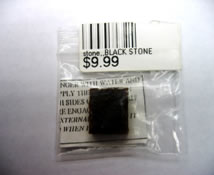Dr. Ruth once famously said, “The most important sex organ lies between the ears.”
 Yet people continue to look for a push, pharmaceutically through Viagra and numerous spam e-mail spin-offs, and, with Valentine’s Day approaching, through food.
Yet people continue to look for a push, pharmaceutically through Viagra and numerous spam e-mail spin-offs, and, with Valentine’s Day approaching, through food.
Sarah Kershaw of the New York Times writes that certain foods with aphrodisiac status, like basil, rosemary, saffron, honey, grapes and pine nuts, were coveted for their great libidinal powers by ancient Greeks and Romans and medieval Europeans. Or, like foie gras, caviar, truffles and Champagne, they were exalted as romantic gifts because of their rarity and luxury.
Others, like figs, asparagus and cucumbers, have long been seen as erotic because of their resemblance to the male and female sex organs (we had asparagus, salmon and sweet potato for lunch yesterday; made Amy a sald with salmon, pine nuts, walnuts and strawberries for lunch today).
Foods with nutrients that could potentially enhance fertility and virility have drawn more interest from researchers, cooks and practitioners of alternative medicine in recent years. Among them is, again, the oyster, which contains zinc, linked to increased sperm production. (However, a zinc-deficient person would have to mow down enormous quantities of oysters before he noticed a difference.) Garlic contains an amino acid that enhances blood flow and could augment erections, according to Meryl S. Rosofsky, a doctor and adjunct professor in the department of nutrition, food studies and public health at New York University.
Rachel S. Herz, an expert in the psychology of smell, wrote in her book “The Scent of Desire” (William Morrow, 2007) that “Asians consider the smell of cheese to be hideous, yet westerners regard it as anything from comfort food to sumptuous indulgence.”
Researchers have uncovered strong links between scent, emotion and sexual attraction. Smell can induce emotion that then triggers neurochemical changes, Dr. Herz said. Of all the senses, she said, it is the only one that bypasses the conscious parts of the brain and goes directly to the limbic system, the region responsible for basic memory, motivation and emotion.
 Smell evolved for finding both food and mates, and much research has found that body odor plays a powerful role in human attraction.
Smell evolved for finding both food and mates, and much research has found that body odor plays a powerful role in human attraction.
This is why I should shower more often.
The nostalgic recall triggered by odors, known as the Proustian Effect, has been embraced by some chefs who believe that eating should be a full-sensory experience, involving taste, smell and even sound.
Heston Blumenthal, of the Fat Duck in Bray, England, invites diners to write down childhood food recollections and uses those musings for inspiration for future dishes.
I’m sure the over 500 people who barfed from norovirus after dining at Blumenthal’s Fat Duck will want to recreate that, especially the sounds, at their next meal.
Leg of lamb from the cheap meat section at the supermarket tonight for dinner, with lots of rosemary. Maybe even some champagne.
But, as Kershaw notes, Shakespeare warned in Macbeth: Alcohol “provokes the desire, but it takes away the performance.”
 The aphrodisiac, commonly known as “stone,” is a chemical composition that is banned by the U.S. Food and Drug Administration. It goes by many names, the Health Department said in a statement, including “Piedra China, Jamaican Stone, Love Stone, Black Stone or China Rock.” The agency says a 39-year-old man died last week after taking the composition. A local hospital alerted the New York City Poison Control Center of the death.
The aphrodisiac, commonly known as “stone,” is a chemical composition that is banned by the U.S. Food and Drug Administration. It goes by many names, the Health Department said in a statement, including “Piedra China, Jamaican Stone, Love Stone, Black Stone or China Rock.” The agency says a 39-year-old man died last week after taking the composition. A local hospital alerted the New York City Poison Control Center of the death.
 Yet people continue to look for a push, pharmaceutically through Viagra and numerous spam e-mail spin-offs, and, with Valentine’s Day approaching, through food.
Yet people continue to look for a push, pharmaceutically through Viagra and numerous spam e-mail spin-offs, and, with Valentine’s Day approaching, through food.  Smell evolved for finding both food and mates, and much research has found that body odor plays a powerful role in human attraction.
Smell evolved for finding both food and mates, and much research has found that body odor plays a powerful role in human attraction.